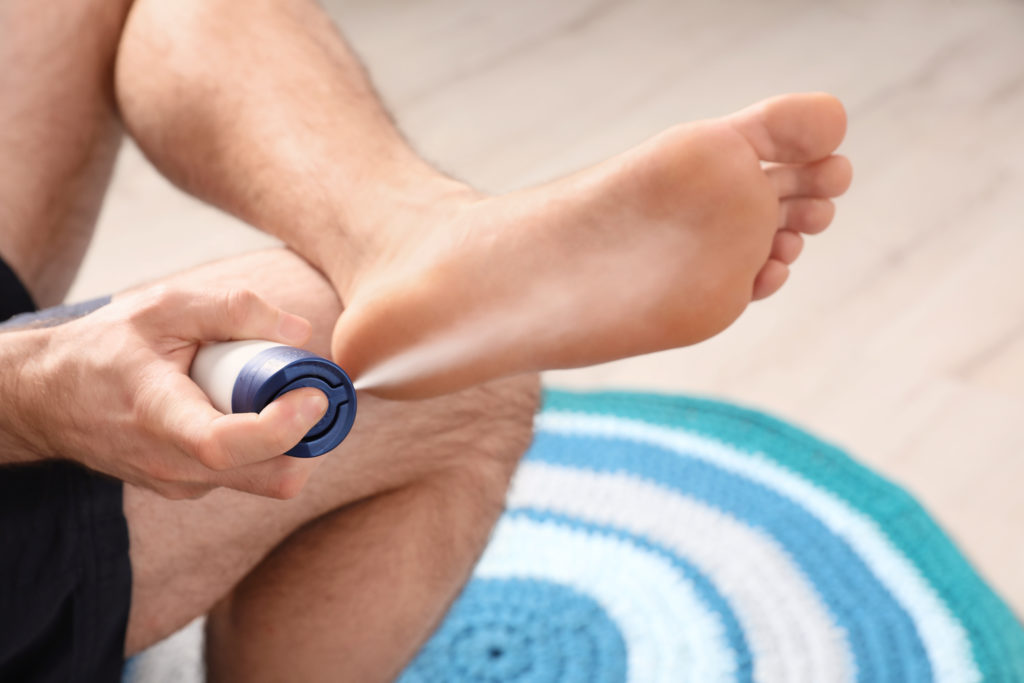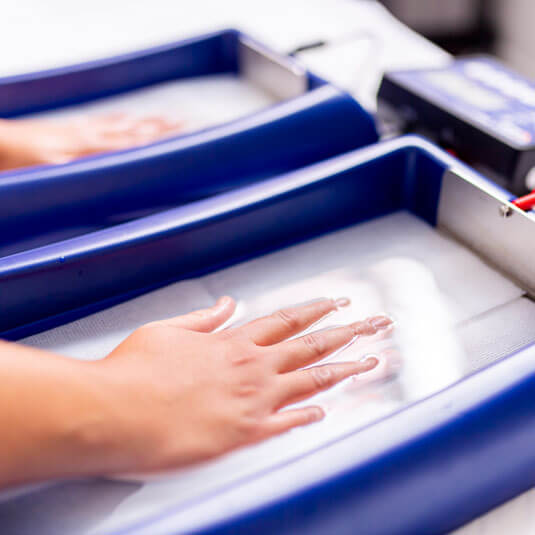Recognizing the Source of Excessive Sweating and Its Effect On Daily Life
While it is frequently understood as a physical action to manage body temperature level, the triggers for extreme sweating can differ commonly among people, incorporating not just physical aspects but psychological and likewise psychological aspects. By delving right into the origin causes of hyperhidrosis and exploring its complex impacts, a much deeper understanding of this prevalent concern can be obtained, dropping light on the intricacies that individuals grappling with too much sweating browse on a daily basis.
Physiology of Sweat Glands
The regulation of sweat manufacturing, an important physiological procedure, is primarily regulated by the task of gland dispersed across the human body. Sweat glands are categorized into two primary kinds: eccrine and apocrine glands. Eccrine glands are one of the most numerous and are found in practically all areas of the body. They play a vital duty in thermoregulation by producing a watery fluid onto the skin's surface, which assists and evaporates cool the body down. In contrast, apocrine glands are concentrated in areas rich in hair follicles, such as the underarms and groin, and their secretions are thicker and milklike in look.
When the body temperature increases, either due to exercise, high temperatures, or emotional tension, the worried system activates the sweat glands to generate sweat. This sweat is made up largely of water and electrolytes like sodium and chloride. The process of sweat manufacturing is important for maintaining the body's inner temperature level within a slim, ideal range, highlighting the important role gland play in human physiology.
Triggers for Excessive Sweating
In recognizing the origin causes of excessive sweating, it is important to determine the triggers that can lead to this physical response. Physical exertion, high temperature levels, and spicy foods are also understood to activate extreme sweating in individuals susceptible to this problem.
In addition, medicines such as some antidepressants, opioids, and specific supplements can likewise act as triggers for hyperhidrosis. Comprehending these triggers is vital in managing excessive sweating effectively - Treatment for hyperhydrosis of hands. By identifying and addressing the details triggers that trigger extreme sweating in a private, doctor can create customized treatment plans to alleviate this problem and boost the individual's high quality of life
Medical Issue Associated
Connected with too much sweating are different medical conditions that can aggravate this physiological action. One common problem is hyperhidrosis, a problem characterized by unusually enhanced sweating that exceeds the body's thermoregulatory demands. This can manifest in focal locations like the hands, soles, underarms, or face, affecting a person's lifestyle as a result of social useful link embarrassment and pain.
Moreover, endocrine disorders such as hyperthyroidism, diabetic issues, and menopausal warm flashes can also result in excessive sweating. useful source Hyperthyroidism triggers an overproduction of thyroid hormones, speeding up metabolic rate and causing sweating. Diabetic issues can generate sweating episodes, specifically throughout hypoglycemic episodes when blood sugar degrees go down as well reduced. Menopausal hot flashes, connected to hormone changes during menopause, can create intense and unexpected sweating, frequently gone along with by flushing and heart palpitations.
Moreover, infections like tuberculosis, endocarditis, and hiv have been connected with evening sweats, a common signs and symptom known to interrupt sleep and influence general well-being. These medical problems highlight the diverse series of underlying elements that can add to too much sweating, demanding comprehensive evaluation and monitoring by medical care professionals.
Mental and emotional Aspects

Influence On Social Interactions
Too much sweating can have profound effects on an individual's ability to involve Exessive Sweating easily in social communications. The visible indicators of sweat discolorations or damp spots on clothes can bring about humiliation and self-consciousness, triggering individuals to take out from social situations. This withdrawal can impact partnerships, restriction social tasks, and hinder specialist and personal development.

Furthermore, the anxiety and self-esteem problems originating from too much sweating can influence interaction and interpersonal abilities. Individuals may have a hard time to concentrate on conversations, take part in team activities, or share themselves with confidence. This can lead to sensations of seclusion and loneliness, as social connections come to be challenging to preserve.
Verdict

While it is generally understood as a physiological action to control body temperature level, the triggers for extreme sweating can differ extensively amongst individuals, incorporating not only physical aspects but also emotional and psychological elements. By diving right into the root causes of hyperhidrosis and exploring its multifaceted effects, a deeper understanding of this prevalent problem can be acquired, dropping light on the complexities that people grappling with excessive sweating navigate on a day-to-day basis.
Physical physical effort, high temperatures, and spicy foods are additionally known to cause extreme sweating in individuals vulnerable to this condition. By recognizing and dealing with the specific triggers that motivate excessive sweating in an individual, health care providers can create tailored therapy strategies to reduce this problem and boost the person's quality of life.
Too much sweating can have extensive effects on a person's capability to involve pleasantly in social interactions.